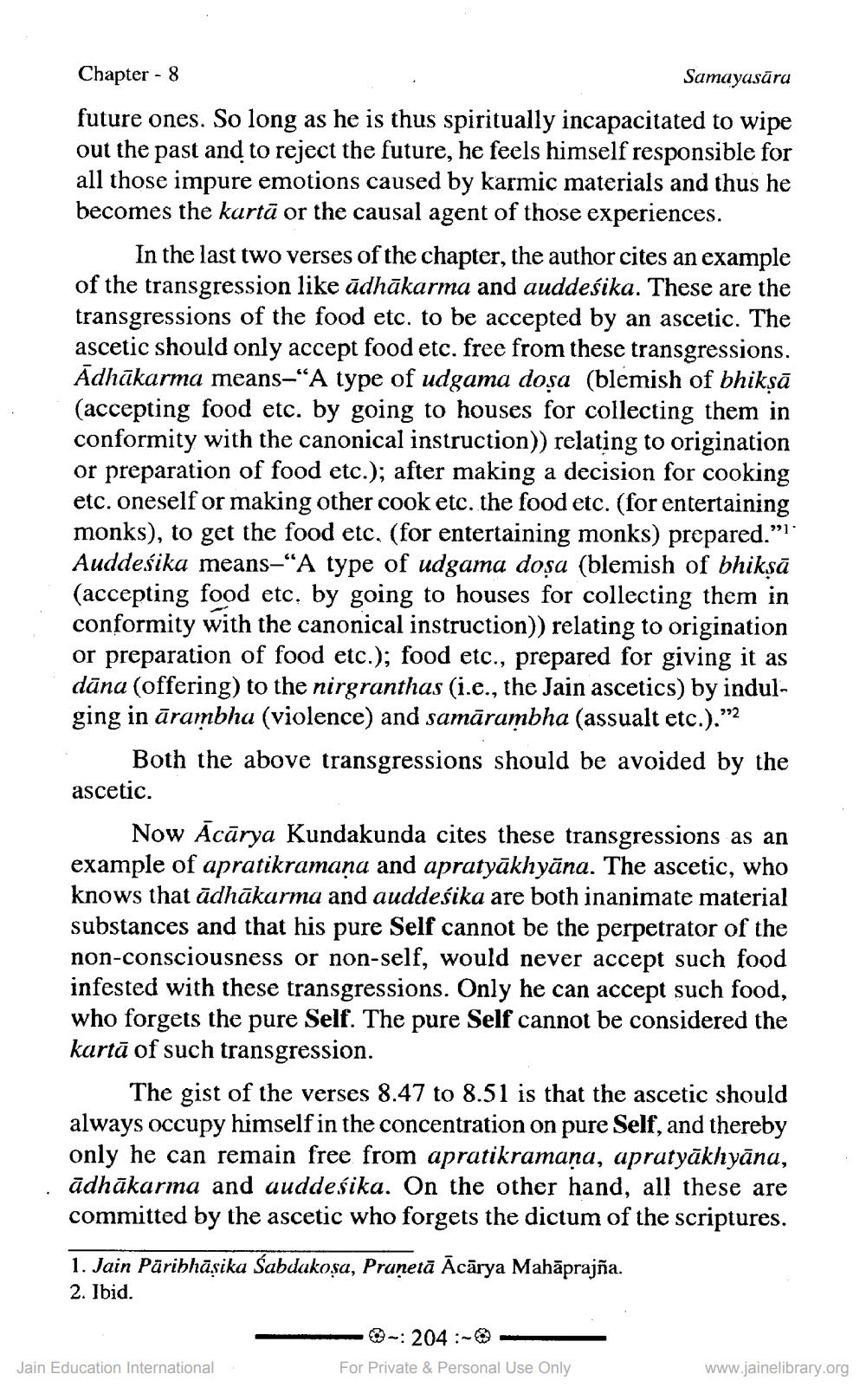________________
Chapter - 8
Samayasara
future ones. So long as he is thus spiritually incapacitated to wipe out the past and to reject the future, he feels himself responsible for all those impure emotions caused by karmic materials and thus he becomes the kartā or the causal agent of those experiences.
In the last two verses of the chapter, the author cites an example of the transgression like ādhākarma and auddeśika. These are the transgressions of the food etc. to be accepted by an ascetic. The ascetic should only accept food etc. free from these transgressions. Ādhākarma means-"A type of udgama doṣa (blemish of bhikṣā (accepting food etc. by going to houses for collecting them in conformity with the canonical instruction)) relating to origination or preparation of food etc.); after making a decision for cooking etc. oneself or making other cook etc. the food etc. (for entertaining monks), to get the food etc. (for entertaining monks) prepared." Auddesika means-"A type of udgama doșa (blemish of bhikṣā (accepting food etc. by going to houses for collecting them in conformity with the canonical instruction)) relating to origination or preparation of food etc.); food etc., prepared for giving it as dāna (offering) to the nirgranthas (i.e., the Jain ascetics) by indulging in arambha (violence) and samārambha (assualt etc.)."
Both the above transgressions should be avoided by the ascetic.
Now Acārya Kundakunda cites these transgressions as an example of apratikramaṇa and apratyākhyāna. The ascetic, who knows that ādhākarma and auddeśika are both inanimate material substances and that his pure Self cannot be the perpetrator of the non-consciousness or non-self, would never accept such food infested with these transgressions. Only he can accept such food, who forgets the pure Self. The pure Self cannot be considered the kartā of such transgression.
The gist of the verses 8.47 to 8.51 is that the ascetic should always occupy himself in the concentration on pure Self, and thereby only he can remain free from apratikramaṇa, apratyākhyāna, ādhakarma and auddeśika. On the other hand, all these are committed by the ascetic who forgets the dictum of the scriptures.
1. Jain Pāribhāṣika Sabdakoṣa, Praṇetā Acārya Mahāprajña.
2. Ibid.
""]
Jain Education International
-: 204
For Private & Personal Use Only
www.jainelibrary.org




